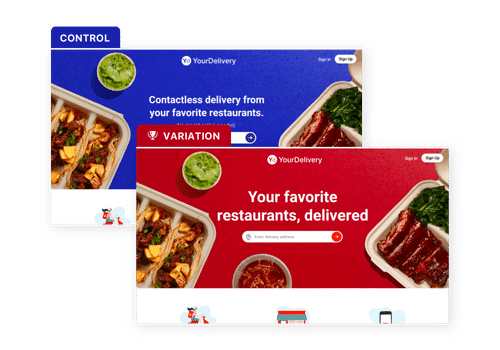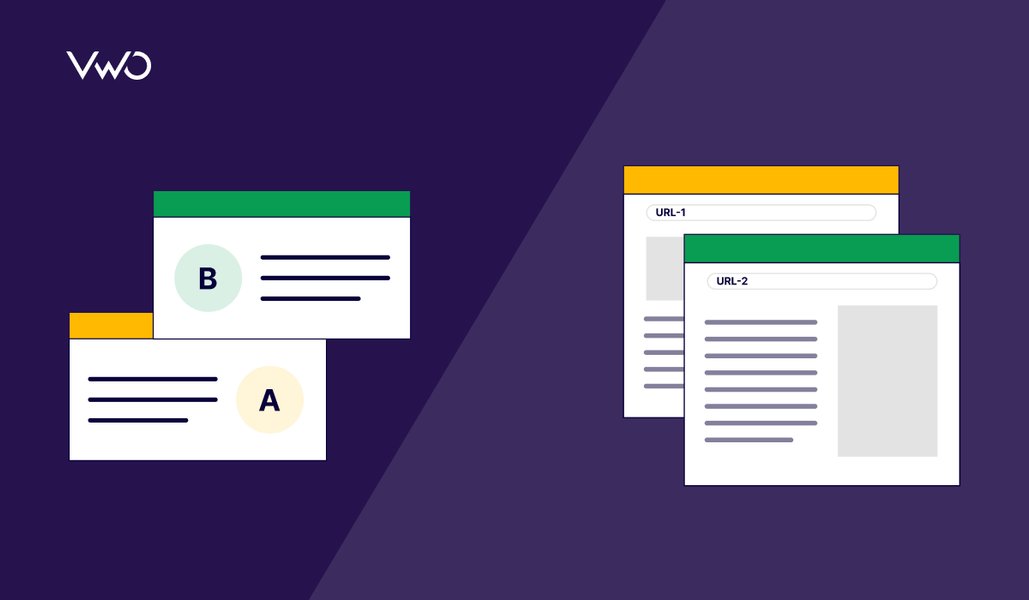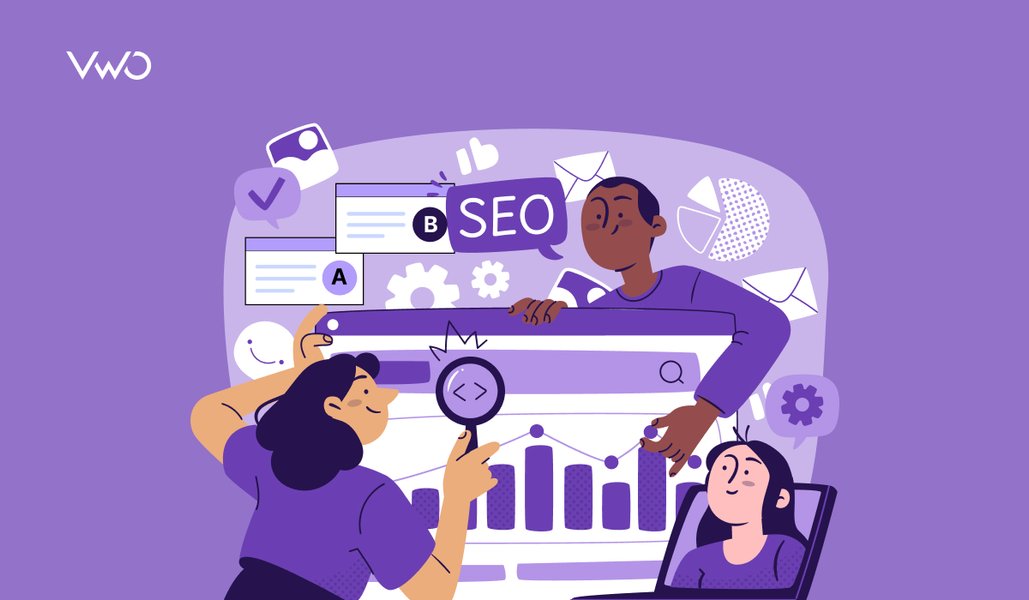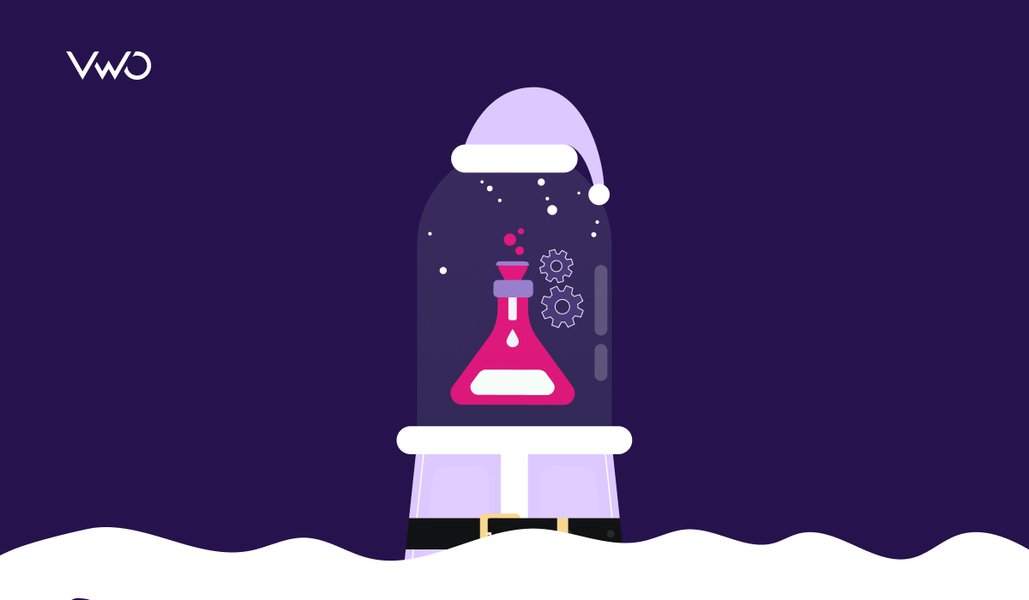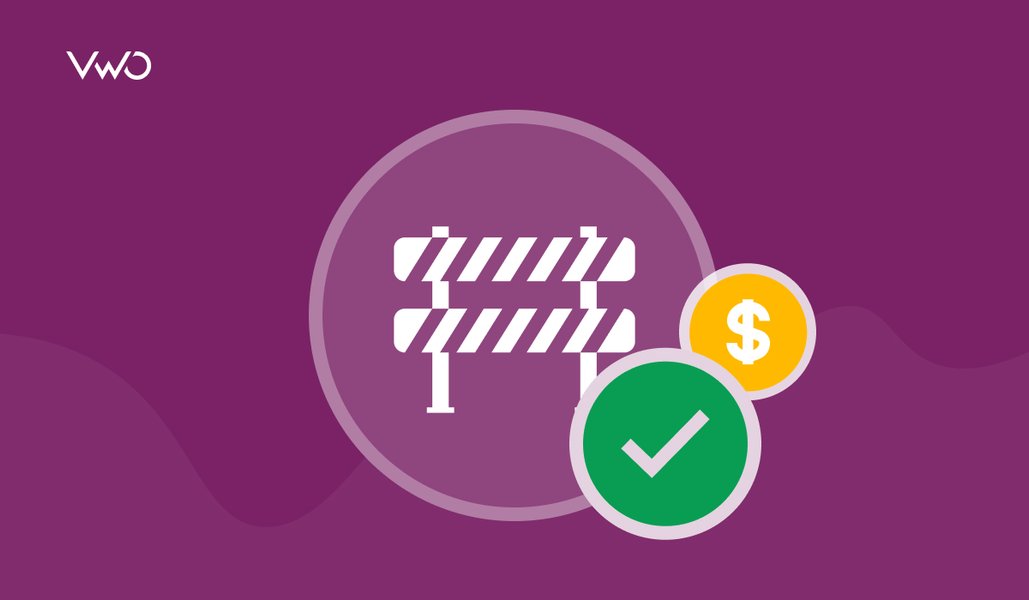A/B Testing For Pricing & Split Testing For Pricing? – Here is How to Do It
Oh, the question thou fear the most:
At what price should I offer my new product X?
Determining the right price for your product is perhaps one of the most difficult tasks when you are launching a new product or service. Pricing for physical goods is simple. For example, if you are manufacturing staplers, all you need to do is calculate the cost of production and distribution, slam a 20% margin on it and there you have the price you can sell your shiny stapler machines for.
Download Free: A/B Testing Guide
Economics 101 (Price Elasticity Of Demand)
But for digital goods with no cost of production, it is not that simple, unless you test your pricing with multiple margins. This zero cost of production complicates pricing decisions because then you need to price the product according to the perceived value of the product in the market. At the core, the idea is quite simple: the higher the price, the lower the demand. However, if the price is too low, you won’t make a lot of money even though you might sell a lot. Similarly, if the price is too high, you won’t make a lot of money even though each unit sold brings you a greater amount of money. This is the basic principle of price elasticity of demand.

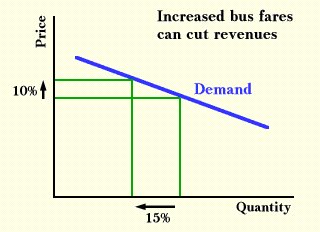
As you can see in the graph above, increasing the price by 10% led to a 15% reduction in the quantity bought which reduced total revenues. Every product has a price point in the graph at which revenues become maximum. If you price it higher, the revenues will fall. If you price it lower, the revenues will fall. Of course, you can’t sit over coffee one evening and draw this price-demand curve for your product. It has to be discovered. Your market determines this curve and A/B testing is an excellent way to find out which price point maximizes the total revenue.
A/B Testing For Pricing: How to set a price range?
Theoretically, the price-demand curve is infinitely long. Price runs from zero to infinity (Y-axis) and so does demand (X-axis). But, of course, practically you need to have a price range in mind that you think is suitable for your product. For example, if you are selling an eBook, you need to see if $15 gets you more revenue than $9. And you would probably be wise enough to avoid testing selling it for $100. The key question here is: how to set the initial price range for price testing?
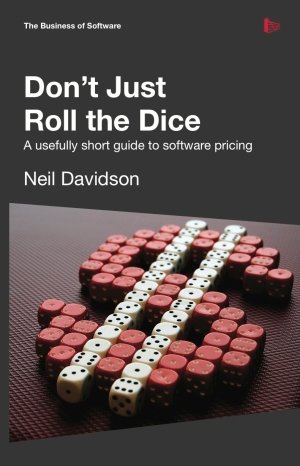
The answer is: don’t just roll the dice. Even though science says that it is about software pricing, I have found it applies to many types of digital products. The basic gist is: to look for other similar products in the market and also look at the value your product is delivering. Set a price range accordingly. Once you have a price range in mind (say $50-$150), the next step is to use A/B split testing to determine the exact price that maximizes revenues.
Split Testing for Pricing: The dark art of price testing
Price testing is one of the most difficult projects you can undertake. There are so many things that can go wrong. Consider this scenario: an influential blogger (say Mike from TechCrunch) is trying out your product and somehow gets to see that you are doing price testing. He writes about it on the blog (because, hey, it is fun to write about something controversial). Reading this post angers your customers. Worst-of-the worst, one of the customers turns out to be an idle lawyer and sues your company. It is a worst-case scenario but quite plausible.
To avoid the “OMG, we got sued due to price testing” scenario, you should be doing price testing according to the following rules (which I classify as the good, the bad, and the ugly — in the reverse order).
The ugly: never offer the same product/service at different price points
Yes, you read it right. This is perhaps the way many companies do price testing but you should NEVER show different prices to the visitors for the same product or service.
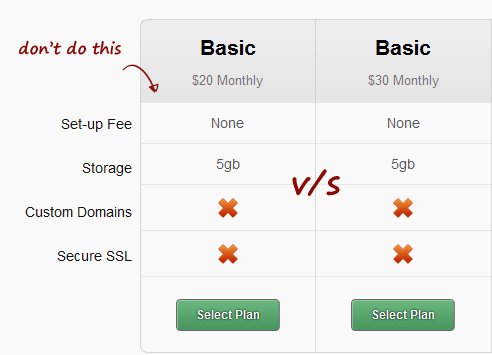
It’s illegal and can lead to a huge lawsuit.
The bad: have slightly different offerings for different price points
This is a less nefarious version of the plain-old price testing. Instead of showing different price points for the same product, you show different price points for slightly different product offerings. You can vary product offerings tested at different price points by adding or removing some trivial features. I will give you an example, if you are selling a backup service, you can create one version where you offer 5 GB storage for $20, in another version you offer 5 GB storage + SSL (trivial feature) for $30. Practically both offerings are similar but technically there is a difference and if anyone ever questions you, you have grounds for justifying the price difference. After all, you are offering different products (no matter how trivial the difference is).
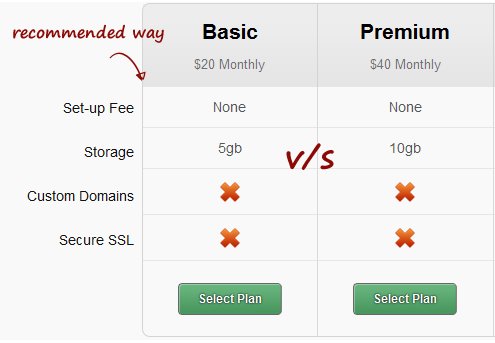
But I consider it immoral. Yes, you can evade potential lawsuits but anyone can tell that you are fooling people.
Download Free: A/B Testing Guide
The good: offer different products (or plans or solutions) at different price points
This is the most ethical way to do price testing. Ideally, you should offer completely different product plans at different price points. Taking backup service as an example again, if on your pricing page, the lowest tier offers 5 GB for $20, test a version where you offer 10 GB for $40 and 2 GB for $8. You are trying to gauge the sensitivity to price here. If your conversion rate for 10 GB is the same as that for 2 GB, this means your service is so compelling that people don’t care if it is $8 or $40. So, in the next update, you ramp up the price to $40 for 5 GB (while still grand-fathering old customers). This way you would know what is the best price point for your service.

Of course, not all digital products have the luxury of offering pricing plans. What if you are selling an interactive eBook? In that case, you need to add some extra value (e.g. 15-minute consultation with the author) if you are trying to test a higher price and remove some value if you are trying to test a lower price (e.g. shorter version of the ebook).
The key lesson for using A/B testing to determine the ideal price is this: offer different values at different price points to gauge the sensitivity of the target market. Then whatever price offers maximum revenue, start offering your main product at that price point (while grand-fathering old customers).

Final gospel: measure revenue, not conversion rate
I have suggested it earlier in the article but will make it clearer here. During price testing, you should measure the revenue (not the conversion rate). Because even though you may end up selling less (hence the lower conversion rate) at higher price points, your total revenues may actually be higher.
VWO lets you measure revenue by integrating with Google Analytics and Omniture SiteCatalyst. So, if you are measuring revenue in one of these analytics tools, you can easily see which price variation resulted in maximum revenue. (Even if you measure revenue in an internal dashboard or Excel, it should be quite simple to measure it for different variations)
So, are you ready to do some price testing?
Let me know your comments and feedback on the strategies I suggested. If you need help in setting up a price test using VWO, we will be happy to discuss it with you. Do email us at marketing@vwo.com.
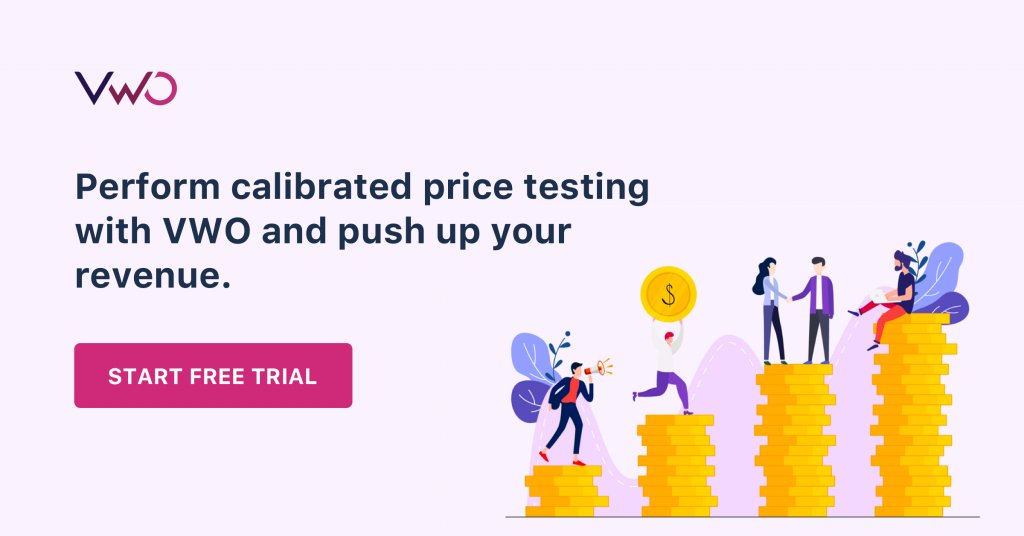
FAQs on A/B Testing Pricing
Some of the price testing methods include asking the beta users of the product about the price, looking at what competitors charge, and doing research on products in complementary industries.
If you offer the same product/service at different price points. Then, yes. it’s illegal and can lead to a huge potential lawsuit.

